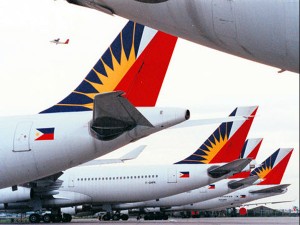
The landmark settlement of the labor dispute between Philippine Airlines and its union in November bodes well for the campaign against contractualization and outsourcing, the labor group Partido Manggagawa said on Thursday, Jan. 2, 2014.
MANILA, Philippines—The landmark settlement of the labor dispute between Philippine Airlines and its union in November bodes well for the campaign against contractualization and outsourcing, a labor group said on Thursday.
The Partido Manggagawa, in a statement, said the settlement “will have repercussions far beyond PAL and is highly significant for the challenge presented by precarious work to workers, employers and the state.”
Precarious work refers to nonstandard employment that is poorly paid, insecure, unprotected and cannot support a household. In recent decades there has been a dramatic increase in precarious work due to factors such as globalization, the shift from manufacturing to the service sector, and the spread of information technology.
New economy
The changes have created a new economy that demands flexibility in the workplace and, as a result, has caused the decline of the standard employment relationship.
The PM said that sheer resistance to the changes by the PAL Employees Association (Palea) saved regular jobs in the national flag carrier.
“If they (workers) had accepted rather than fought outsourcing then they would have become contractual workers trapped in an endless cycle of six-month ‘endo’ jobs. Or worse, they would have become unemployed in a jobless growth economy. Instead, some 600 Palea members will be returning to their regular jobs in the coming weeks,” the PM said.
Both the workers’ resistance and the rigorous campaign for their cause “put into question the popular view that precarious work is a global trend that cannot be rolled back,” it said.
Miners regularized
It pointed out that just weeks after the PAL-Palea agreement was signed, 500 contractual mining workers in Cebu won regularization after mass actions by their union.
The PM said the Department of Labor and Employee’s new regulations on contracting and subcontracting arrangements—adopted while the labor dispute at PAL was brewing—could also be used by workers to their advantage.
The current PM vice president, Gerry Rivera, is Palea’s president.
The labor dispute was triggered by the decision of PAL’s former management to retrench some 2,600 workers and outsource their jobs, which led to a Palea strike in September 2011. While the dispute was pending in court, the new majority owner of the airline, San Miguel Corp., took over in 2012 and opened negotiations with the union to end the dispute.
The settlement, which was accepted by the Palea members in a vote on Nov. 8, provided for the rehiring as regular workers of some 600 union members who were retrenched in 2011 but refused to accept the outsourcing plan.
Reapplying
he PM said the process of Palea members applying for reemployment has started and PAL is mandated to give them priority in hiring for regular positions. The agreement also grants an improved separation package of 200 percent per year of service and P150,000 in gratuity pay.
Officials of the airline and Palea have declined requests for details of the settlement, citing a confidentiality clause in their agreement.
In a statement, PAL said the Palea members would still have to undergo “a consistent and fair assessment process” and that only those who met the airline’s qualifications and hiring requirements would be rehired for available jobs.
“PAL and Palea reaffirm their commitment to a harmonious labor-management relationship as a key factor in providing total customer satisfaction. PAL calls on its investors, stakeholders and customers to support the flag carrier’s efforts to realize its vision of becoming one of the region’s leading global carriers,” the airline said.